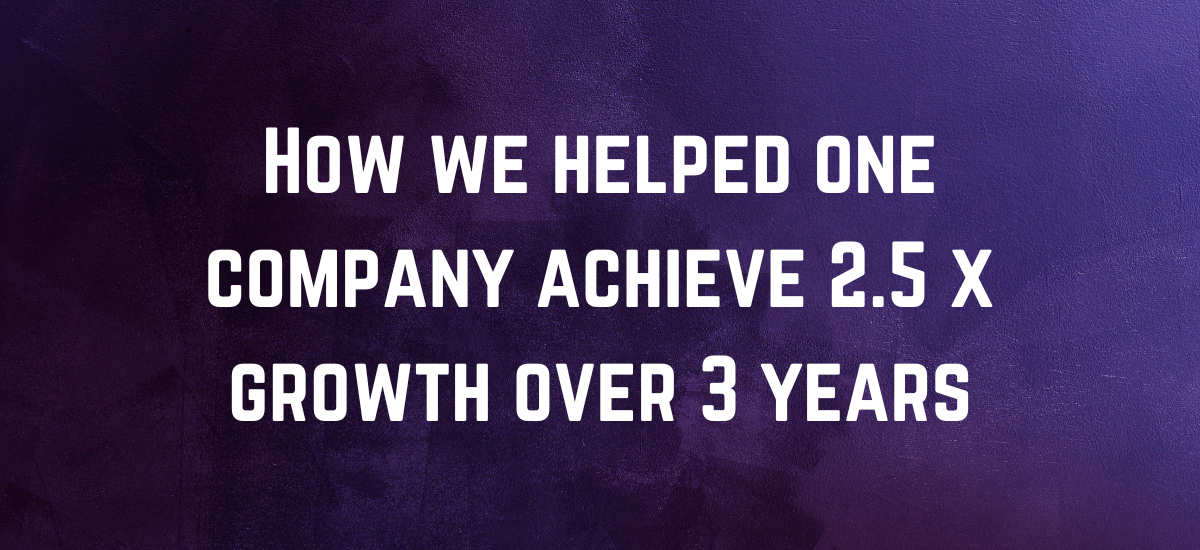by deborah
Share
by deborah
Share

Over 3.5 billion internet searches take place every day. This number includes plenty of searches for financial services businesses like yours.
How do you increase the chances of people discovering your business when searching for your specific services? It all comes back to a solid search engine optimisation (or SEO) strategy.
If you’re curious about the benefits of SEO for financial services businesses or how to optimise your company’s website, you’re in the right place. You’ll learn everything you need to know below.
Basics of SEO
Search engine optimisation is all about improving your website to make it more visible on the results pages for search engines like Google and Bing.
A well-planned SEO strategy will help your website appear at the top of the page (or at least close to the top) when people search for financial services like those you offer.
When your website shows up on the first page and is close to the top, people are more likely to click on and visit it. Increased clicks and visits typically lead to better lead-generation efforts and increased sales.
SEO for Financial Services Businesses
How can you increase the chances that your financial services business’s website will rank higher on search engine results pages? Start by optimising it by following these guidelines:
Audit Your Content
Start by auditing your existing website content, including critical pages (About Us, Services, etc.) and blog posts.
Make sure your pages contain sufficient detail and provide real value to your audience. They should also be up-to-date and contain relevant information.
Remember that webpages must feature clear headings and bullet lists so people can get the gist without reading every single word. Search engines reward scanability and will likely rank you more highly if your content is easy to consume.
Conduct Careful Keyword Research
Using the right keywords will also influence your search engine ranking. Your content should contain keywords and phrases that people are likely to use when searching for financial services businesses like yours.
If you’re not sure which keywords to include in your content, start by making a list of words and phrases that are relevant to your business. Then, type these words and phrases into Google and scroll to the bottom to look for related searches.
Those searches will provide additional words and phrases you can include, as well as relevant questions you can try to answer in your content.
Evaluate Your Competitors
To improve your financial services business’s SEO, take a look at your competitors’ websites and online content.
Consider what they’re doing well and where they can improve, as well as how their website stacks up against yours.
Look for content gaps — such as topics they don’t cover in their blog posts — that you can fill in, too. If you offer information that your competitors don’t have, you’ll have an easier time claiming the top spot on search engine results pages.
Focus on EAT
EAT stands for Expertise, Authoritativeness, and Trustworthiness. Google users EAT to evaluate website quality.
If your content demonstrates genuine expertise, your company is seen as an authority in the financial services sector, and your information is trustworthy, you’ll rank higher on search engine results pages.
There’s no quick fix when it comes to improving your EAT standing. Focus on publishing high-quality content and gaining external links back to your site from trustworthy, relevant sources.
You can also enhance your EAT standing by updating your Contact Us and About Us pages to make them more detailed and helpful.
Prioritise Technical SEO
Technical aspects of your website can improve your search engine ranking as well.
For example, if your website loads quickly and is optimised for mobile devices, it will rank more highly than a slow website or one that doesn’t adjust to different screen sizes.
Other examples of effective technical SEO include creating an XML sitemap that features key pages and designing your navigation menu to help people quickly find content and other website pages. Use internal links to other pages on your website to encourage visitors to stay on the website longer and learn more about your financial services business, too.
Enhance Local SEO
Local SEO helps you attract more people in your area to your website.
To improve your local SEO, start by including more location-centred keywords in your content. For example, you might use phrases like “financial advisor in Denver” or “Chicago accountant.”
Claim your free Google My Business page, too. This page allows you to gain more control over how your financial services business information gets displayed online. It also lets you invite locals to review your business.
Optimise Your Website Today
When you consistently prioritise SEO for financial services businesses, you’ll be amazed at the results you experience. Follow the guidelines discussed above so you can create an effective strategy.
For more advice, check out our Fintech Content Marketing services today.





